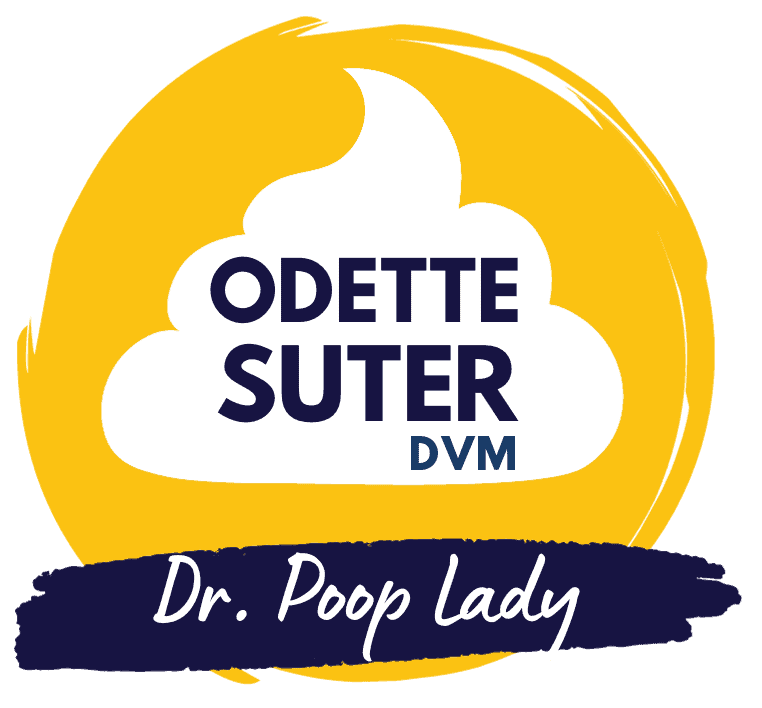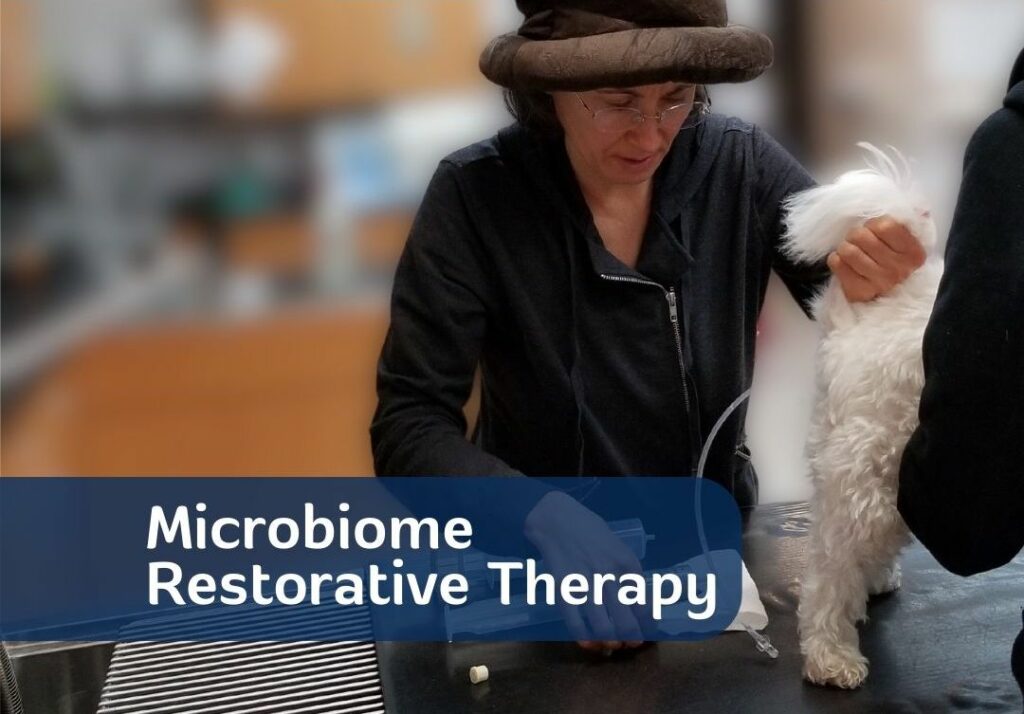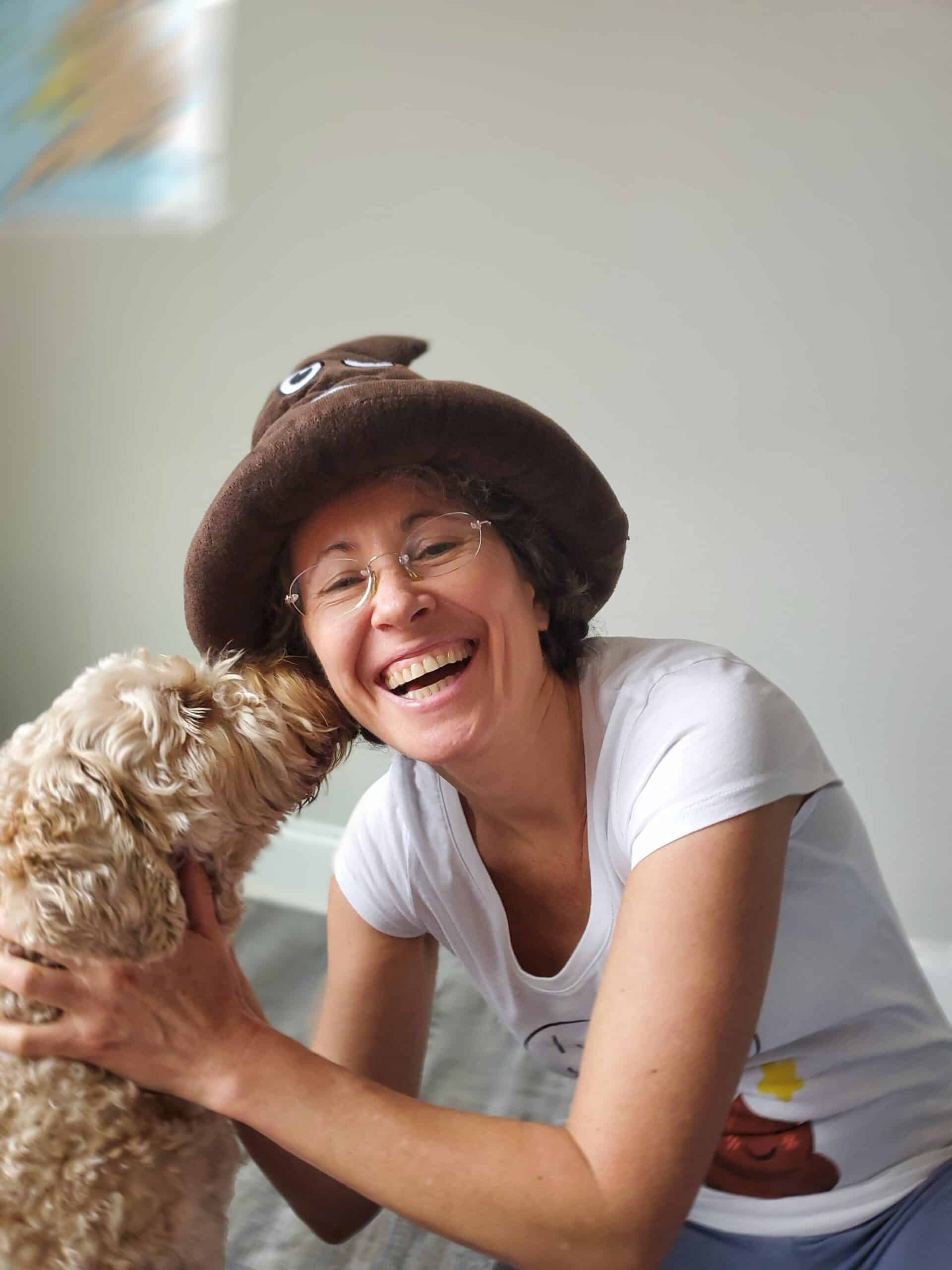Congratulations on your new family member! Or if you’re in the planning stages, may the best puppy for you find her/his way to your home.
Of course, I assume that you want your puppy to have a smooth transition to his new family and stay healthy for the next 20 some years? Am I right?
Well, then, here are some things to know to give your new furry love the best start in life and how to keep it healthy for many years.
If you haven’t picked a breeder yet, I highly recommend looking for a naturally reared puppy because they get what their little body needs from the get go. Generally, both mom and dad are exceptionally healthy and well taken care of through species appropriate diet and an as non-toxic of a life style as possible. For example, my fecal donor dog (who has to be super healthy) grew up in the country on many acres of land. He received plenty of exercise, roaming in the forest and was exposed to an abundance of microbes to create an outstanding microbiome. He was weaned onto a raw diet and wasn’t vaccinated until his immune system was more mature (more on that below). Four generations of family history showed his ancestors to be of excellent health. This is the kind of puppy you could call your own with a little bit of research.
It goes without saying that puppies from puppy mills don’t get a good start, because they weren’t born into a nurturing environment and often their parents were already unhealthy. Nothing strong and vibrant can be born from that.
In your search please ask many questions and don’t let outdated practices such as spaying or neutering your baby before it even makes it to your family.
If your little bundle of furry joy is already born, I recommend talking to the breeder about postponing vaccines as much as possible. Unfortunately, it isn’t common knowledge that vaccinating them too early only weakens their defenses. The reason is that vaccines use up maternal antibodies that were meant to fight actual disease, leaving them defenseless instead. It isn’t until they reach about 10 weeks of age that their own immune system starts to pick up. Thus, before that time, vaccines do the exact opposite of what they are intended to do and leave them at risk for disease.
Another thing you can ask for is to have them weaned to a species-appropriate diet. If the breeder will let you, you can also provide your puppy with probiotics and enzymes to make the transition to solid food easier. In the wild their food would already be somewhat predigested by their mother who regurgitates what she found for her puppies.
Excessive deworming is also a common practice. Again, you can ask the breeder to run fecal tests instead. You may have to pay for that additional service, but in the end, you’re helping to nurture a better microbial flora in the GI tract. This is where most of the immune system resides. Thus, true prevention of illness in those little ones – and as they get older – comes mostly from a healthy and diverse microbiome.
Then before the puppy joins your family, adding immune supporting supplements such as colostrum, fermented goat’s milk and some extra vitamin C is a good idea. The transition to your home is an extraordinarily big change and any help they can get makes a difference.
Avoiding vaccinating right before your puppy comes to you is important as well, because vaccinating an animal lowers its immune defenses. Add to that the tremendous stress and trauma to be taken away from mom, put into a completely new situation and the perfect setting for disease will have been created.
Once your new puppy joined your family there are several things to consider. Given the aforementioned big change, it is best to give the puppy a few days to adjust and take in the new surroundings as to not overwhelm all the senses.
In my practice I suggest the same for vaccination or further deworming (if necessary) because their body needs time to settle in.
When people bring their puppy to its first wellness visit I discuss the following subjects with them:
Diet:
I usually recommend staying with the same food until the puppy has been with you for a few days before making any changes. This again is to reduce the amount of stress. While you wait to switch to a species appropriate diet you can add digestive and immune support such as colostrum and enzymes. Essential fatty acids are also helpful because they promote proper brain development.
Once accustomed to all the changes, switching to a raw, low-carbohydrate and balanced diet is the healthiest way to go and will provide the best chance at a long and healthy life. Food provides the building blocks for every cell of the body. Without optimal nutrition, there is no way that cells can do their job properly. And since malfunctioning cells manifest in disease, optimal nutrition is the best prevention and medicine. Trying to save money on diet is a recipe for disease and suffering. It’s like trying to build a house with cardboard.
Gastro-intestinal tract:
As mentioned above it is crucial to create/promote an excellent microbiome. This means that your puppy needs to have 300 to 1000 different species of microbes in its GI tract. They get some of it from their mother, but much of it also comes from exposure to different environments as well as a variety of foods and probiotics. My personal preference is to inoculate the puppies with fecal matter from my fecal donor dog every so often. This gives them a big boost in regards to digestive and immune function, optimal brain development and maturation, and growth in general. Given that microbes outnumber a body’s cells by a factor of ten and genetically by a factor of 150 it only makes sense to pay special attention to the little helpers so they can do their jobs.
Because deworming and other preventative treatments decrease the diversity of microbes it is better to regularly check for parasites rather than just randomly deworming.
Socialization:
A puppy’s brain isn’t fully developed until five months of age but, there is a critical period from 3 to about 14 weeks of age where socialization is especially important. This can be a little bit of a dilemma, because at that age they’re also most susceptible to infectious diseases such as parvo for example. With most puppies vaccinated prematurely and limited in their ability to fight disease, the need for extra immune support is essential. In addition to ongoing supplementation, I recommend adding extra Vitamin C before and after potential exposure (puppy class, vet or pet store visit). I also provide my patients with homeopathic Parvo and Distemper nosodes to further minimize the risk.
A good rule of thumb to create a well adjusted puppy is to do 100 different things in 100 days. That includes visit to the vet, meeting new people and animals (not just dogs), exposure to different surroundings, car rides, nail trims, manipulating teeth and gums for future brushing of teeth, familiarize them with thunder and fire work sounds, etc. A good book on the subject is “The Puppy Primer” from Patricia B. McConnel, PhD and Brenda Scidmore. It covers potty training, play-biting, raising a confident puppy and much more.
Of course, socialization doesn’t stop at 14 weeks but is an ongoing process.
Vaccines:
This is where you need to be educated the most in order to be your dog’s fierce advocate, because many veterinarians are NOT up to date on most recent research in that field. Unfortunately, many still abide by an outdated and damaging yearly vaccine schedule for parvo and distemper. The same is true for rabies. By law the first rabies immunization has to be a 1 year vaccine, but past that, there it should always be a 3 year vaccine, preferably the Thimerosol- free kind.
Vaccination needs to be individually tailored, not just to your puppy, but also to you. Some of my clients feel comfortable foregoing puppy vaccines all together and only immunize for rabies, while others wouldn’t be able to sleep at night without knowing that their dog had all of its core vaccines (Parvo, Distemper and Rabies). From the puppy’s perspective it will depend on its current health as well as prior vaccinations. There is no one size fits all.
Drs. Jean Dodds and Ronald Schultz have created guidelines for minimal vaccination and recommend titer testing instead of booster vaccines for Distemper and Parvo. I usually combine titer testing with the first heartworm test around 6 months of age, but titer testing can be done at 14-16 weeks but no sooner than 3 weeks after a vaccine.
Vaccines outside of Parvo, Distemper and Rabies have questionable efficacy and can cause significant adverse effects. But again, you have to decide what works for you based on your research. No matter what you decide, it is important to space out vaccines and never ever let any vet give them all at the same time or when your animal is sick (that includes allergies, diarrhea, coughing, anesthesia…).
In my practice every puppy receives extra immune support before and after as well as a homeopathic remedy and detox support. I also add NAET, a form of allergy elimination technique, that aids the body in better tolerating the vaccine.
Heartworm:
As soon as a puppy is born and the conditions are favorable for heartworm maturation within mosquitos, there is a chance for it to become infected. The heartworm association recommends starting preventatives no later than 8 weeks of age. There are again different approaches available depending on where you live and your comfort level. Traditional heartworm preventatives (XX Plus) most often also contain extra drugs to kill intestinal parasites. I don’t recommend those because they negatively affect the microbiome. And what dog needs deworming every month? Also stay away from injectable options, because they can be very harmful to your dog. Once they’re in, there is no way to take them back out should your dog have a reaction. Herbal alternatives are also available, though there is only anecdotal evidence of their efficacy. If a client chooses to not use any preventative, I recommend testing 3-4 times a year. The first test should be done between the ages of 6-12 months.
Fleas and Ticks:
Although quite pesky, natural preventatives are healthier for your little friend. Essential oils, raw amber stone necklaces and other energetically working pendants can be used. Garlic and Cistus Incanus tea have been found to repel ticks. Alternately, you could get some Guinea hens to patrol your environment. Isoxazoline drugs (Bravecto, Nexgard, Simparica, Credelio, Revolution Plus) are drugs to avoid at all cost. More on that here.
Body Work/Chiro:
When your dog is a puppy is the best time to start with regular body work in order to keep it aligned properly and prevent serious arthritis and other musculoskeletal issues down the road (see article in previous DNM). Puppies are not very gentle with their bodies. Hard play, body slamming, running into things can all start the slow decline.
Insurance:
I always tell my clients to consider getting insurance coverage if they don’t have 10,000 – 20,000 dollars laying around. Medical expenses can add up fast, especially as they get older.
I will end with this: everything comes with risks and benefits that need to be evaluated. Nothing is ever risk free, no matter what we chose. So, make sure you’re well informed and don’t blindly follow what any vet will tell you – traditional or holistic. But generally speaking, focusing on supporting the body’s innate ability to be healthy will shield it from disease.
My Holistic Pet Health & Longevity Method Program is the ideal place to educate yourself in detail and get holistic veterinary assistance from the comfort of your own home. Click here to find out more.






